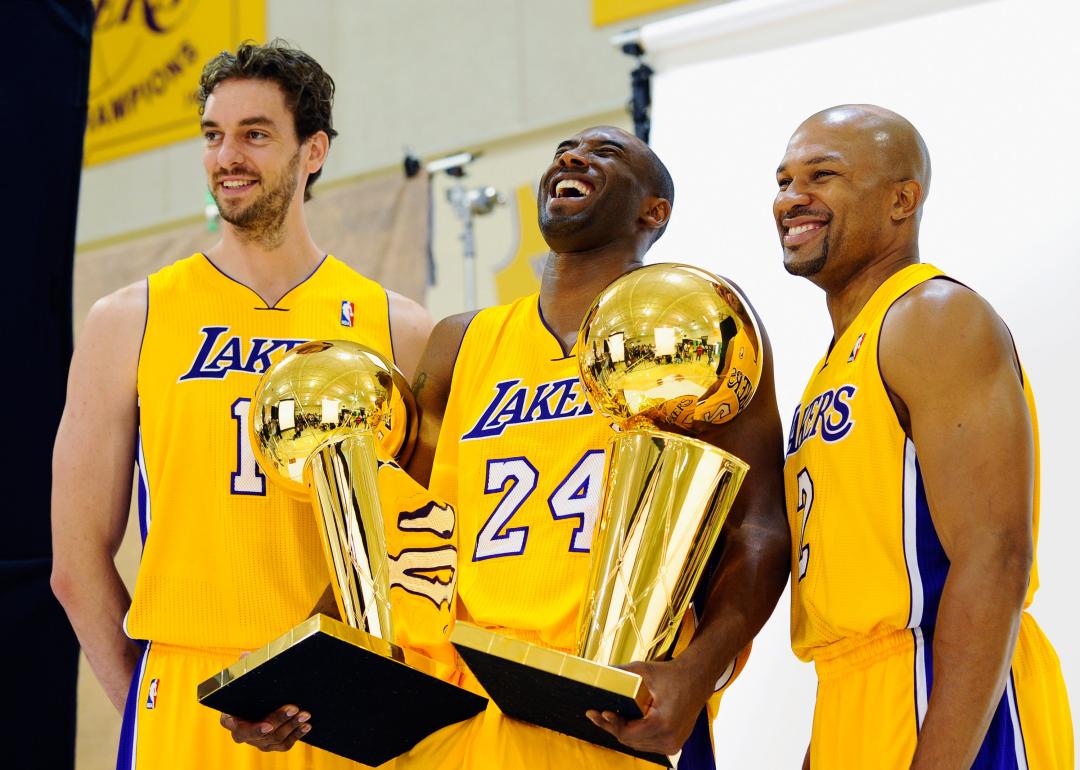
This story originally appeared on ATS.io and was produced and distributed in partnership with Stacker Studio.
Biggest NBA dynasties
Fans who loathe NBA dynasties are usually in awe when they end, and the Golden State Warriors are no different. Positionless basketball, paired with the most proficient three-point shooters in Stephen Curry and Klay Thompson, frustrated opponents for years. Still, the Warriors have gained appreciation for their impact on the sport, like previous teams before them.
Dynasties can serve as the lifeblood that revitalizes and sustains a sports league. The '80s Lakers and Celtics centered on the captivating rivalry between Magic Johnson and Larry Bird. It attracted a burgeoning audience, one that rescued the league from collapse and created a foundation for its success.
Dynasties, furthermore, redefine opportunities for athletes. The Tim Duncan-era Spurs, joined by Tony Parker and Manu Ginobili, marked a pivotal juncture in the NBA. It contributed to the globalization of the sport, producing a pipeline for international players who play critical roles in the NBA today.
With all the dynasties in the NBA, who ranks supreme? Many would say the '90s Bulls, who won an incredible six championships in eight years (and only lost two when Michael Jordan left them behind for baseball)—but the data may say otherwise. To determine the best dynasties in NBA history, ATS.io looked at all teams that won three or more championships within a single decade using data from Basketball Reference.
After examining their win percentage during the years of their first and last championship within that decade, dynasties were then ranked by their win percentage during those years. Though many dynasties on this list did not play the same amount of games due to playoff structure, shortened seasons, and number of teams in the league, the regular season gives a telling snapshot of a team's dominance in an era.
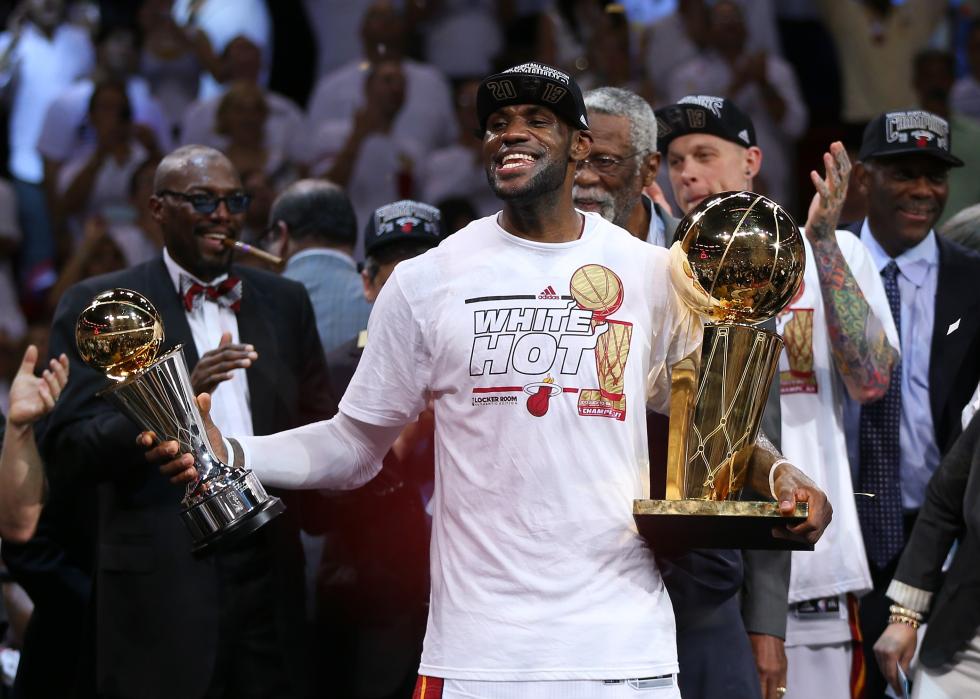
#9. Miami Heat (2006-2013)
- Win percentage: 58.25%
- Championships: 3
The Heat lucked out with Dwyane Wade in the 2003 NBA Draft, who took over in the 2006 NBA Finals to help the Heat win its first title. Wade, the No. 5 pick overall in 2003, was also named the 2006 NBA Finals MVP.
After a few years of struggling, LeBron James and Chris Bosh joined Wade in the 2010-2011 season, cementing the dynasty that headed to the NBA Finals in four consecutive seasons, winning the titles in 2012 and 2013. LeBron returned to Cleveland in 2014, and Bosh retired due to health concerns, but this era set an example for superstars in free agency.
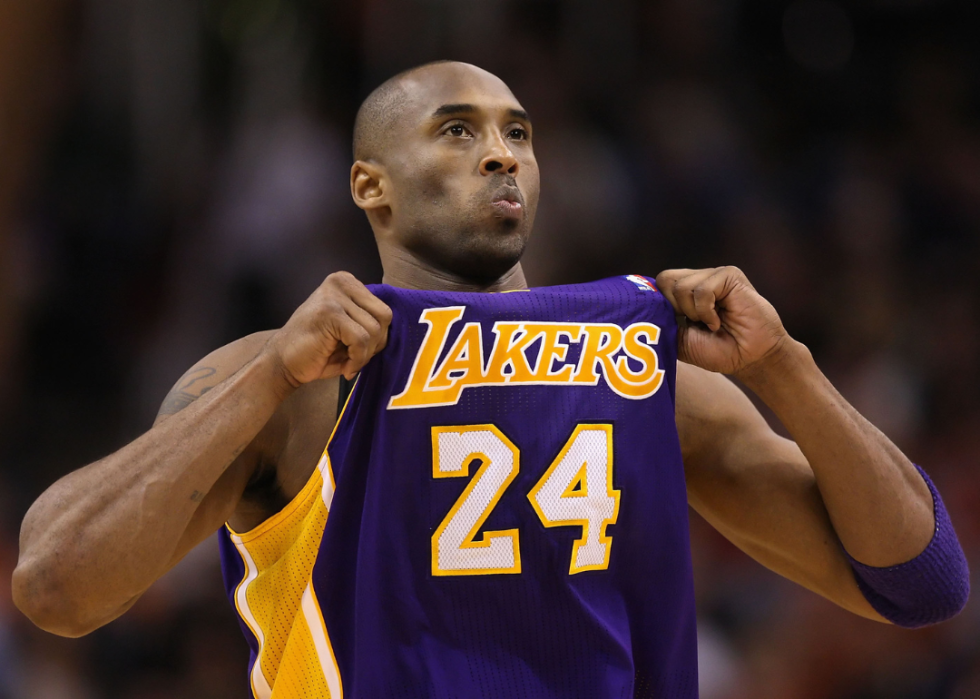
#8. Los Angeles Lakers (2000-2010)
- Win percentage: 65.08%
- Championships: 5
The millennium started great for the Lakers; center Shaquille O'Neal racked up five awards, including the MVP and league scoring title. Paired with All-Star guard Kobe Bryant, O'Neal helped the Lakers win their first title in a decade.
After a three-peat, Shaq was traded to the Miami Heat, and the team entered a period of mediocrity. After signing Pau Gasol and pairing with Hall of Fame head coach Phil Jackson for the 2007-2008 season, the Bryant-led Lakers won back-to-back titles in 2009 and 2010.
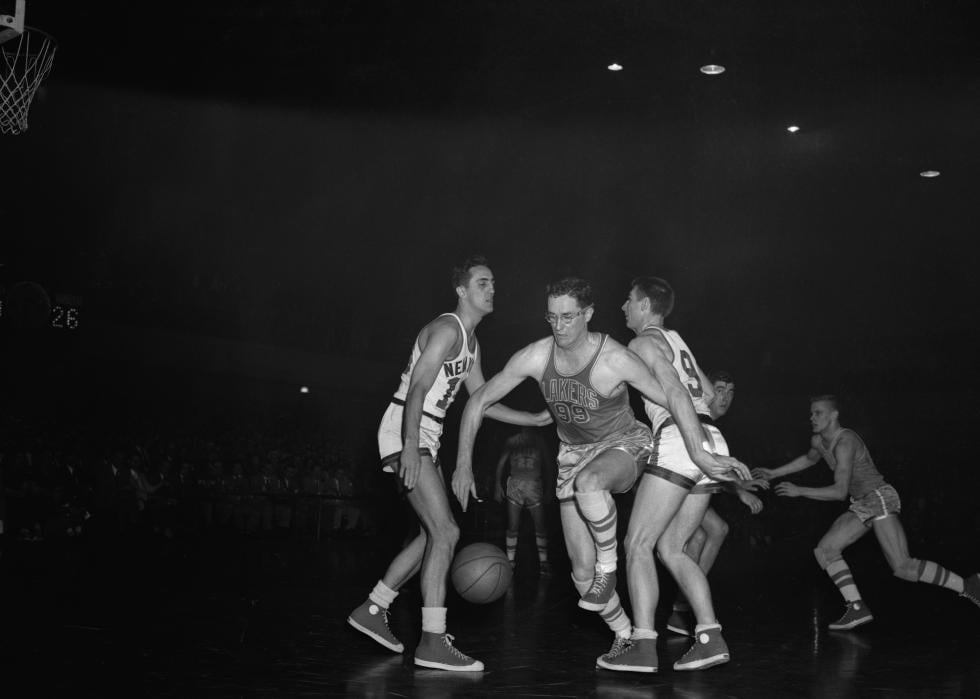
#7. Minneapolis Lakers (1949-1954)
- Win percentage: 67.57%
- Championships: 5
Sportswriter Sid Hartman assembled what is known as the first dynasty in the NBA. Led by star center George Mikan, the Lakers won five of the first six championships after entering the NBA, cruising through many playoff runs as the top seed in that era. After Mikan's retirement, the team struggled and would not see success until its move to Los Angeles in the early '60s.
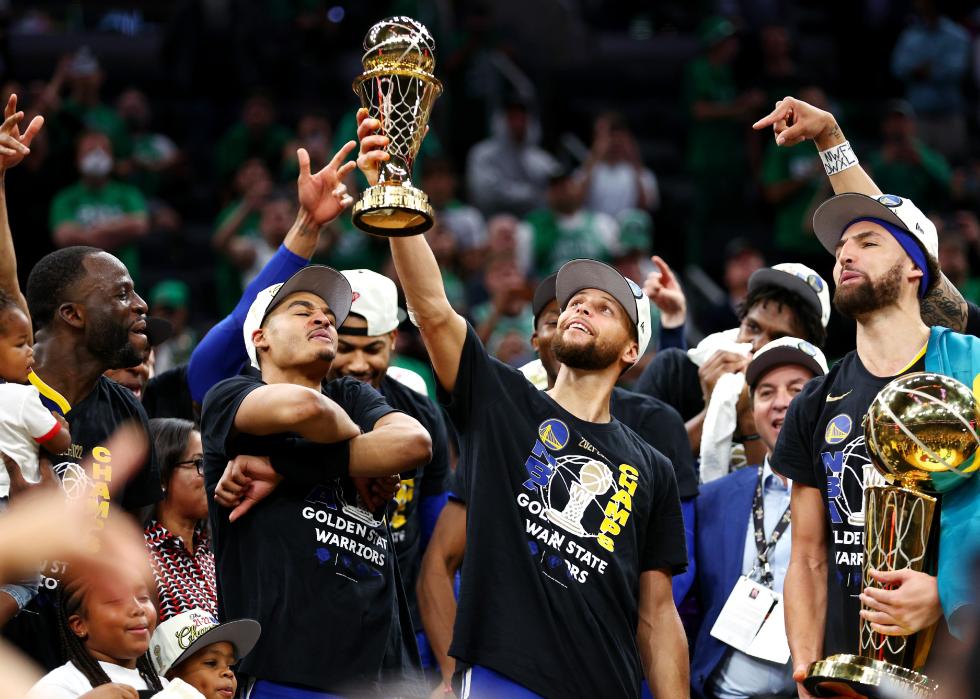
#6. Golden State Warriors (2015-2022)
- Win percentage: 68.2%
- Championships: 4
The Warriors burst onto the scene when they triumphed over the LeBron James-led Cavaliers in the 2015 NBA Finals and kept getting stronger. They broke the record for wins in a regular season the following year, posting a 73-9 regular season record. In the offseason, they also signed 2014 NBA MVP Kevin Durant, who helped them win back-to-back titles.
Even with two injury-plagued seasons that brought down their win percentage and Durant's departure following the 2018-19 season, the team still claimed a championship in 2022, led by NBA Finals MVP Steph Curry, who averaged 31.2 points per game. (If it weren't for those two aforementioned seasons, the Warriors would be #1 on this list.)
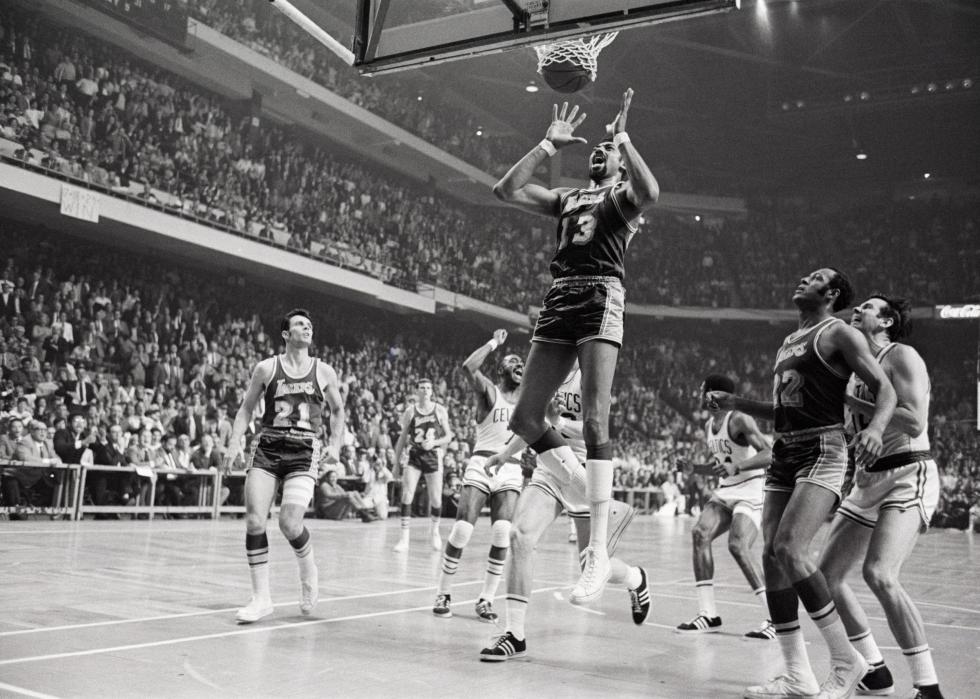
#5. Boston Celtics (1957-1969)
- Win percentage: 70.54%
- Championships: 11
An astounding 11 championships in 13 seasons is a streak that's yet to be matched by any other professional team, winning the first eight as the top seed and effortlessly passing through the playoffs.
Led by center Bill Russell and head coach Red Auerbach, the Celtics ushered in ball movement and defense that is still used in the NBA today. Their clashes with the Los Angeles Lakers built the foundation for the biggest rivalry in the NBA.
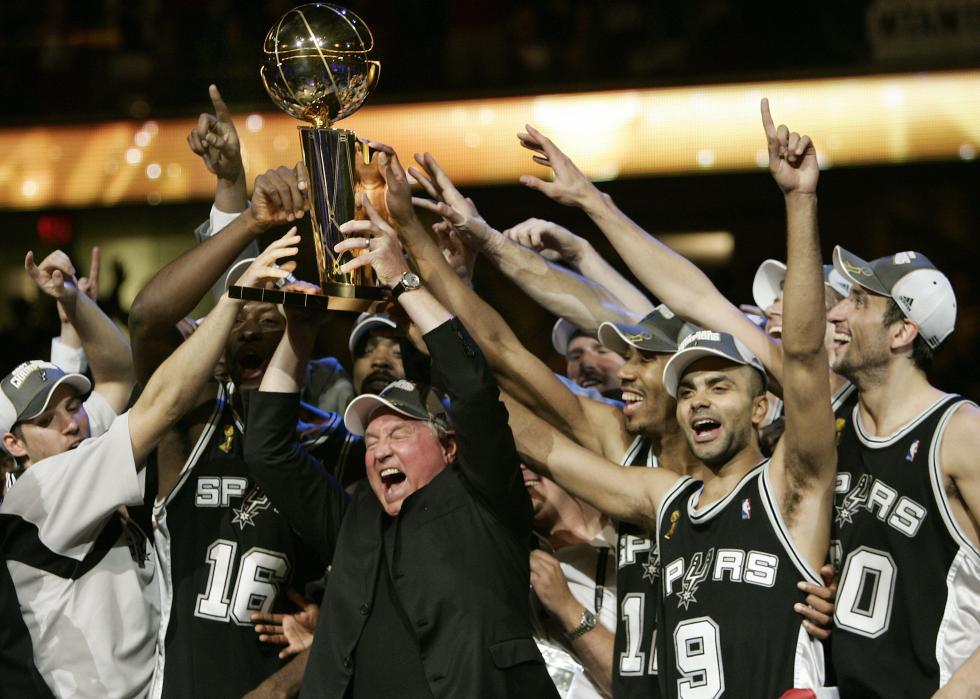
#4. San Antonio Spurs (1999-2007)
- Win percentage: 71.25%
- Championships: 4
Even with center David Robinson reaching the final stretch of his career, the Spurs managed to dominate well into the new millennium, winning the 1999 title in a shortened season. Led by the trio of Tim Duncan, Manu Ginóbili, and Tony Parker, they won four championships, with Duncan claiming two league MVPs in the process.
Coach Gregg Popovich bucked the trend of superstardom, focusing on a team-first mentality with a strong defense.
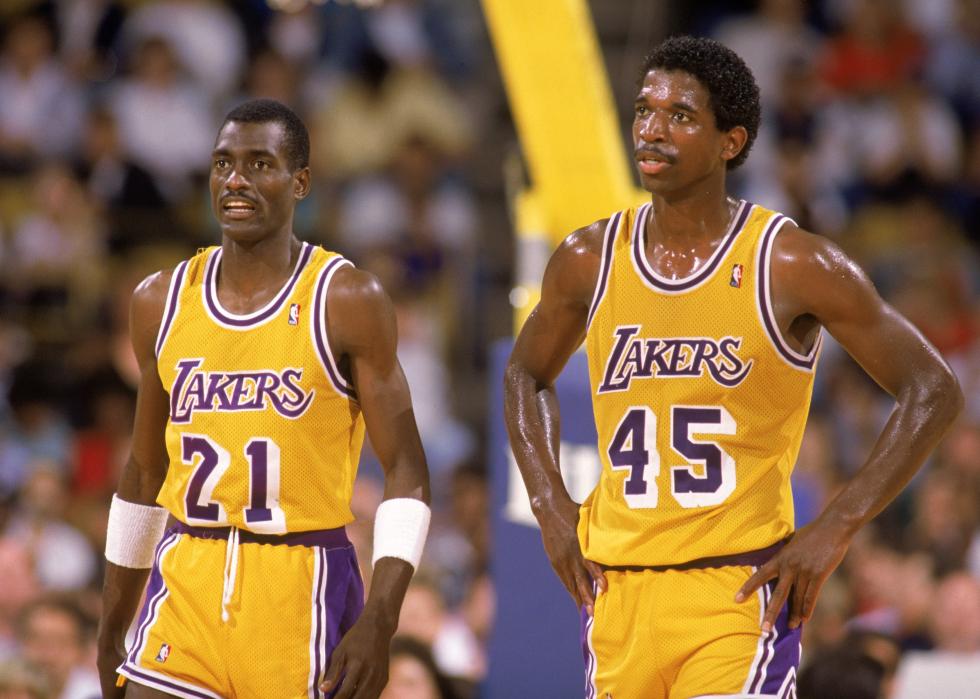
#3. Los Angeles Lakers (1980-1988)
- Win percentage: 72.36%
- Championships: 5
New owner Jerry Buss was on a mission to reshape the NBA with the Showtime Lakers, winning five championships in the process. With the first pick in the 1979 NBA Draft, Earvin "Magic" Johnson joined Kareem Abdul-Jabbar, and they managed to win their first championship together that year.
Joined later by Hall of Famers James Worthy and head coach Pat Riley, they went on to win four more rings, fighting against the rival Boston Celtics in some of the most iconic clashes of the decade.
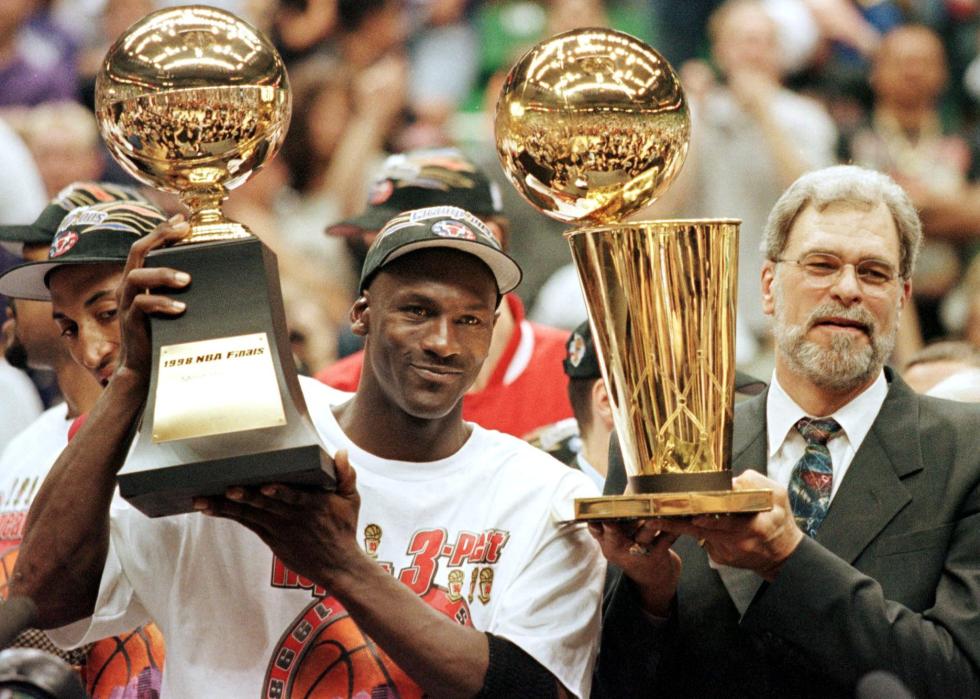
#2. Chicago Bulls (1991-1998)
- Win percentage: 74.7%
- Championships: 6
Synonymous with the '90s and basketball in general, the Bulls, led by Michael Jordan, won their first championship in 1991, with assists from Hall of Famer Scottie Pippen and head coach Phil Jackson. Though the team struggled to replicate its title success following Jordan's initial retirement in 1993, they rebuilt after he came back.
Joined by defensive juggernaut Dennis Rodman and three-point specialist Steve Kerr, the Bulls held a then-record of 72 wins in the 1996 regular season and a trio of titles to follow.
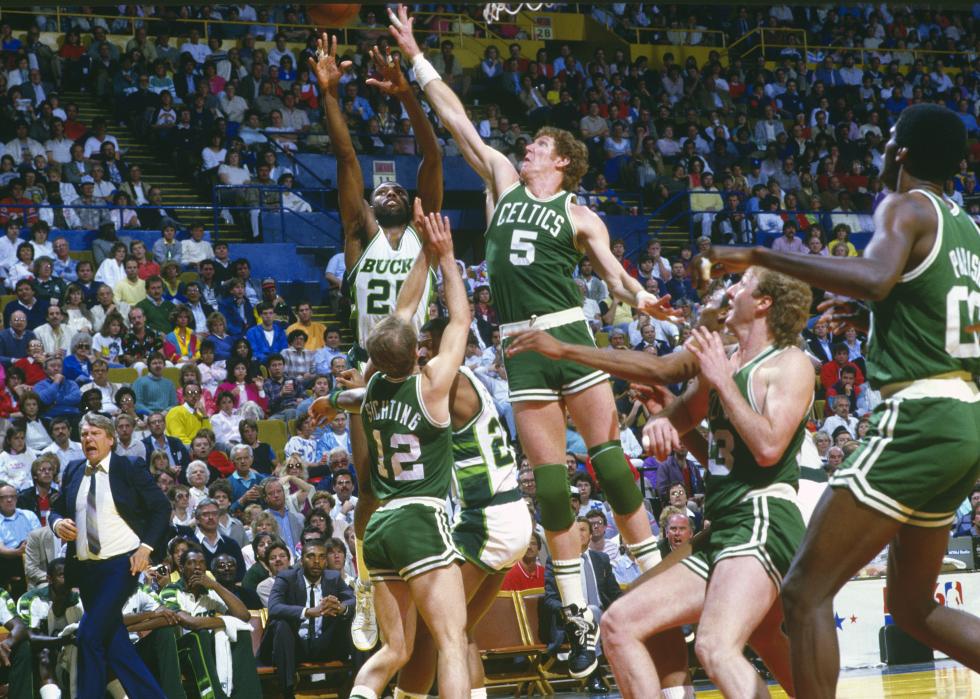
#1. Boston Celtics (1981-1986)
- Win percentage: 75.81%
- Championships: 3
They may have won fewer championships than the '90s Bulls—and most other dynasties on this list—but the '80s Celtics' win percentage is unmatched. After Larry Bird paired with Kevin McHale and Robert Parish in the 1980 offseason, the Celtics won the 1981 championship, its first in five years. They then collected a second one against their biggest rival, the Los Angeles Lakers, in 1984, marking the first of three matchups between the two in the NBA Finals.
Basketball fans view the 1985-86 team as one of the greatest NBA teams ever—this is when former MVP Bill Walton joined the trio to beat the Houston Rockets in a rematch to win their third title in 1986.
Story editing by Jeffrey Smith. Copy editing by Robert Wickwire. Photo selection by Clarese Moller.



